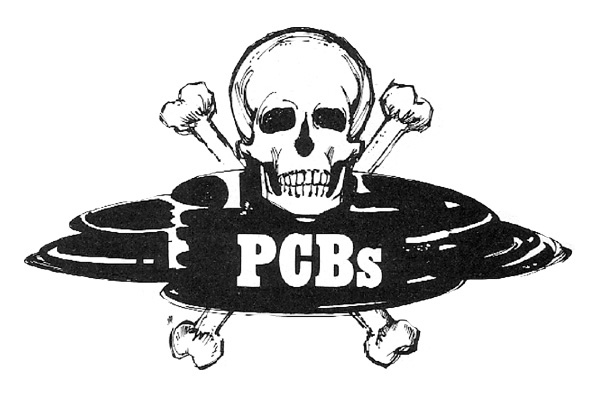
Source: writerscramp
PCB, or Polychlorinated Biphenyl, refers to a group of more than 200 man-made chemicals that were produced in the 1930s for use in hundreds of industrial and commercial applications. In the late 1970s, the group of substances was banned, as they were discovered to be toxic and highly persistent.
Still, levels of PCB can be found in products produced before the ban, because of the substances’ extreme durability.
Why PCB is dangerous for you?
Anything from plastics to oil-based paints to transformers, even adhesives produced before the ban may have dangerous levels of PCB. The substance can enter the body by breathing contaminated air, eating tainted food or skin contact with old electrical equipment.
The chemicals can remain in the body for months, and can even be transferred from a mother to an infant by breastfeeding.
Those exposed to extremely high levels of PCB can be at risk of many health problems. While skin irritations are the most common, possible liver damage, lowered immune response and, possibly, stunted cognitive development in children are all possible.
For animals, the side effects are even worse. Exposure to PCB, even a short time, can lead to organ damage, cancer and death. Some studies have even shown a link between high levels of PCBs and cancer in humans.
This has led many health organizations, including the World Health Organization, to classify PCBs as a possible human carcinogen.
PCBs are especially dangerous because of their longevity. This allows for levels of exposure to pile up over time within a person’s body, allowing for a greater likelihood of illness.
Where PCBs can be found?
However, many buildings built before the ban with high levels of PCBs have already been closed and shut down. Any areas with large quantities of PCBs must also be clearly marked so everyone knows of the danger.
The good news is since the ban has been in effect for so long and governments are taking these precautions, the likelihood of increased exposure is now very unlikely.
If your place of business does have a PCB problem, Ferro Canada has a specialized service to take care of it. We will come in and classify, package, transport, recycle and destroy all PCBs in the area.
Since PCBs were most commonly used in old electrical equipment, Ferro Canada will ensure that any contaminated equipment is properly extracted and shipped to a designated facility to be destroyed, in accordance with all government regulations.
Make Sure Your Commercial Area is Free of PCBs

